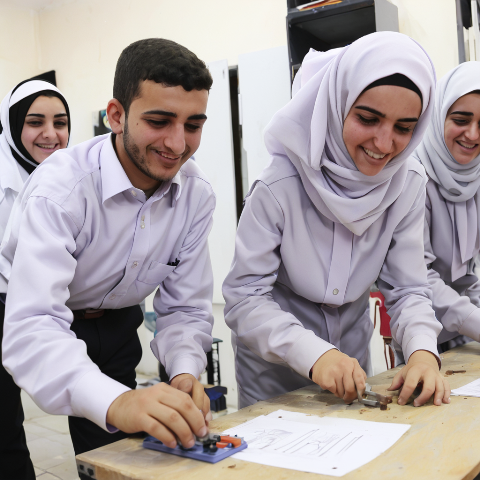In a significant step towards addressing the challenges of disarmament, demobilization, and reintegration (DDR) in Libya, thirty young men and women from across the country participated in a workshop organized by the United Nations Support Mission in Libya (UNSMIL) on Thursday. The workshop provided a platform for these youth to share their insights and recommendations on implementing a DDR process in Libya, adhering to international standards.
The discussions highlighted the profound impact of political and security instability on the youth in Libya. Participants emphasized the need for dialogue between various actors, including armed groups, within a unified legal, security, and political framework. They expressed concern that the current environment in Libya is not conducive to an effective DDR process.
Aicha Kort, a DDR Officer with UNSMIL, outlined the complexities involved in DDR processes. “Integrated DDR processes are multi-stakeholder efforts comprising different, interlinked combinations of DDR programs and related tools, to complement traditional DDR including community violence reduction,” Kort explained. She emphasized the importance of tailored engagement to address the unique challenges faced in Libya.
Key Recommendations from the Workshop:
Unified Institutions: Participants stressed the need for unified security, military, and governmental institutions in Libya to ensure the legitimacy and effectiveness of the DDR process.
Enhanced National Dialogue: The youth called for the UN to support an enhanced national dialogue between armed groups and all Libyan parties, moderated by a third party. This dialogue should aim to build consensus and develop a comprehensive and inclusive integrated DDR process.
Youth Inclusion in Politics: Participants recommended the introduction of a quota to ensure youth participation in the political sphere, allowing them to engage in decision-making discussions.
Economic Opportunities: To prevent youth from joining armed groups, the workshop suggested providing alternative economic opportunities.
Community Awareness Campaigns: Awareness campaigns about demobilization and the negative impact of armed groups should be conducted in the most affected communities.
Increased Coordination and Youth Engagement: There is a need to increase coordination among stakeholders working on DDR and to enhance youth engagement within civil society organizations (CSOs).
Psychosocial Support: Providing psychosocial support to members of armed groups was deemed crucial for their reintegration into society.
National Policy Framework: The youth recommended the development of a national policy framework for DDR and the provision of capacity-building support within the government.
Pilot Approach: A smaller-scale approach could be piloted with armed groups in the Western region to build support for a broader DDR process across Libya.
The workshop participants highlighted the societal acceptance of armed groups as a significant barrier to DDR. “Libyan society is too accepting currently of the armed groups,” one participant noted, adding that some families take pride in their children’s involvement in these groups. The youth underscored that without a strong commitment from all parties and broad community participation, DDR in Libya would face significant challenges.
The workshop concluded with a call for continued dialogue and collaboration among Libyan stakeholders and the international community to create the necessary conditions for a successful DDR process in Libya.











